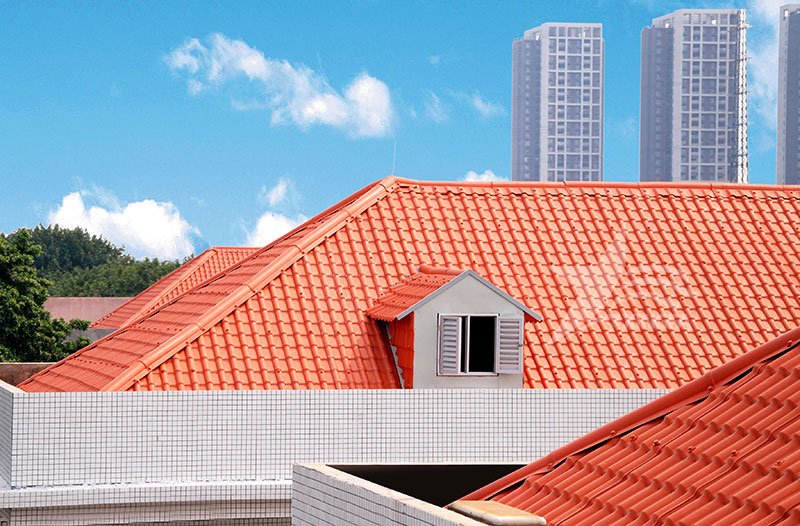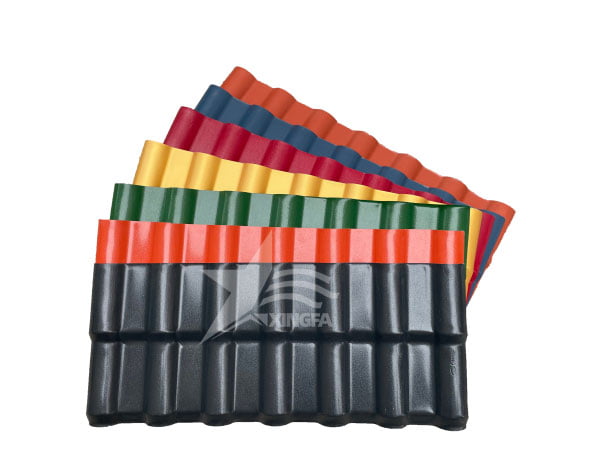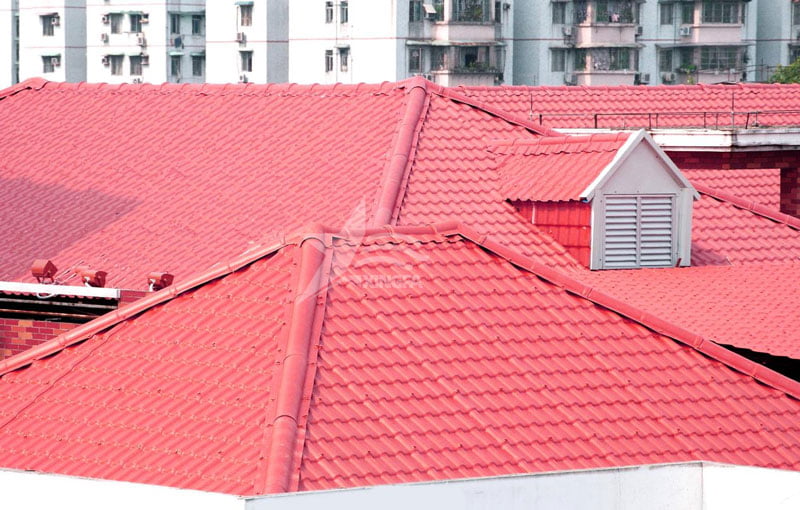In recent years, resin tiles have flourished in the roofing materials market and have become very popular. Whether it is in rural self-built houses, tourist attractions, or in cities, resin tiles can be seen everywhere. Although resin tiles are highly sought after, some minor drawbacks are still mentioned, such as the issue of thermal expansion and contraction of synthetic resin tiles. In fact, every product has its pros and cons. Today, let’s talk about how to avoid the problem of thermal expansion and contraction of synthetic resin tiles.

The most effective method is actually to drill a small hole on the resin tile during installation, with a diameter about three millimeters larger than the nail, to accommodate thermal expansion and contraction. Then, screw in a self-tapping screw, which can effectively prevent the resin tile from stretching the nail due to thermal expansion and contraction. Also, before screwing in the nail, apply a little force to make the waterproof cap just touch the surface of the tile, avoiding pressing it down, as this will compress the tile surface. By ensuring that the waterproof cap is just touching the tile surface, it can effectively prevent the tile from pulling on the screw during thermal expansion and contraction, thus extending the lifespan of the resin tile.

Most building materials, including resin tiles, have the issue of thermal expansion and contraction. However, compared to other building materials, resin tiles have a relatively small thermal expansion and contraction rate. This is because resin tiles themselves have the advantage of volume stability. Even with significant temperature changes, the expansion and contraction of the tiles can be absorbed, resulting in volume stability. Therefore, based on the above, as long as attention is paid to the expansion holes during installation, the thermal expansion and contraction of synthetic resin tiles can be avoided, without affecting the characteristics and use of synthetic resin.


